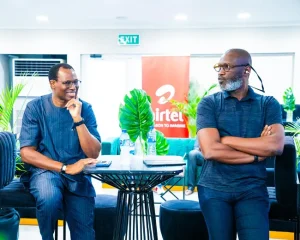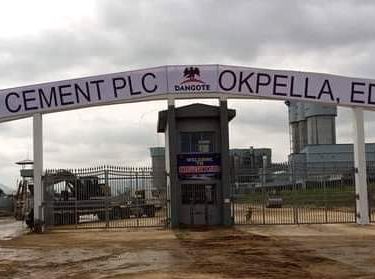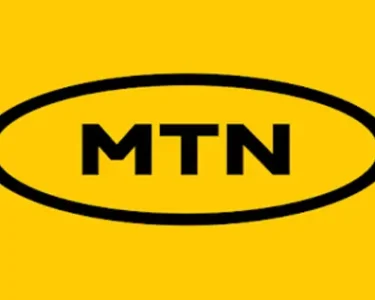The request from several sectors of the Nigerian economy demanding a reversal of the tariff hike telecoms services have just been put to rest by the telecoms operators, their umbrella body, Association License Telecommunications Companies of Nigeria (ALTON) and the Telecoms Workers Union.
The key players from the telecoms industry at an event, The Forum with Telecom CEOs over the weekend noted that there is no going back on the tariff hike or reducing the increase to five percent as demanded by the Nigerian Labour Congress as against the 50 percent approved by the Nigerian Government.
According to the telecoms operators, it is not in their power to subsidise other sectors of the economy noting that there are other rising costs in the economy that been affecting their businesses.
The operators reflected on how in the last 20 years they have struggled to remain in business amid other rising costs in the economy that have affected their businesses adversely.
Chief Corporate Services Officer, MTN Nigeria, Plc, Mr Tobechukwu Okigbo noted that investment needed for power in the industry is not yet available stressing that if the telecoms sector in Nigeria go down like the National Power Grid, it will take time to get it working again.
While recalling other cost in the economy that went up over the years, he noted that if the telecoms industry that sustain other sectors of the economy must survive, then there is the need for price increase.
Speaking further on the need to sustain the tariff hike, Okigbo said: “We call telecommunication, it’s one of what is called a social overhead capital. These are industries that undergird every other thing in the economy. They are normally industries that have externalities, (and telecom is one of the key words.”
He explained: “If you think about it right now, I suspect that any of us who, by chance, leaves their phone at home and steps out, and realises that they don’t have their phone, they will immediately rush and go and get it, because they want to be able to communicate. It’s not just about getting news and all that, but it’s just about being able to communicate.”
Lamenting further the present crisis in the sector that necessitated the tariff hike, he stated that “if telecom goes off, you can’t wait for it to come on, so you don’t need to switch on anything” saying that “It’s not possible to buy your own network.”

The sad reality in the sector, Okigbo noted is the risk associated with the sector going down saying, that “the risk was that we were getting to the place where we will be in a situation where we simply won’t be able to provide the service.”
According to him, the operators are no longer talking about profitability but sustainability of the business adding that there are telecoms operators that have had to borrow expensively to be able to provide the service subscribers need.
He noted also that if the situation is not urgently tackled shareholders fund will be wiped out while Foreign Direct Investment eroded adding that the 50 percent will push all that away, “so that we can have profitability.”
He said: “In the history of any industry, in the history of the world, there’s a particular time where there’s an inflexion point. And if that tipping point is reached, going back becomes a problem. I suspect that what this 50% will do is to push that inflexion point away.
“We were almost there. We were getting there. It was going to happen.”
Reacting to questions on why mobile phone lines go inactive after sometime, Okigbo said keeping a customer comes at a cost to the operator saying that each line attracts a fee from the mobile operator that goes to the Government and when a line is dormant, such customer is taken out of the network to save cost.
“I have been in the industry a bit long enough to see the transition of the sector. And I can say to you that we are not immune against it. A number of the early day players are no longer here”, he stated.
Adebayo added: “Some of those competitors survived the tipping point, the inflexion point that my brother just spoke about. So we came to a point where it was important for the government to look at the issue of sustainability and consumption. And that’s why we think that this review that we are going to now have in practise is a good position for us to survive.”
Recalling the tough times in the sector that has lasted, he said: “I think we will go through first a period of recovery because of the deep hole that we have suffered, the deep pot hole that the highway has suffered. And in recovery, we hope things get better. As has been said, I don’t want to echo that a lot.”
He also disclosed that over the next few weeks subscribers should begin to changes in the pricing of telecoms services adding that the there is light in tunnel on the USSD crisis and the banks unpaid debt as some have started responding.
Giving rational behind the tariff hike, Director, Corporate Communications and CSR, Airtel Nigeria, Mr Femi Adeniran, stated that the 50% is for the interest of the consumers saying that ‘we want to be able to serve our customers.”
He disclosed that on a daily bases, the telecoms operators are confronted with several challenges.
Also speaking the Chief Customer Relations and Experience Officer, MTN Nigeria Plc, Ugonwa Nwoye, noted that operators have send notice to the NCC to get to the approval saying that the work is going on, and that once the approval is done this February, subscribers will know what to pay for the new telecoms tariff.




